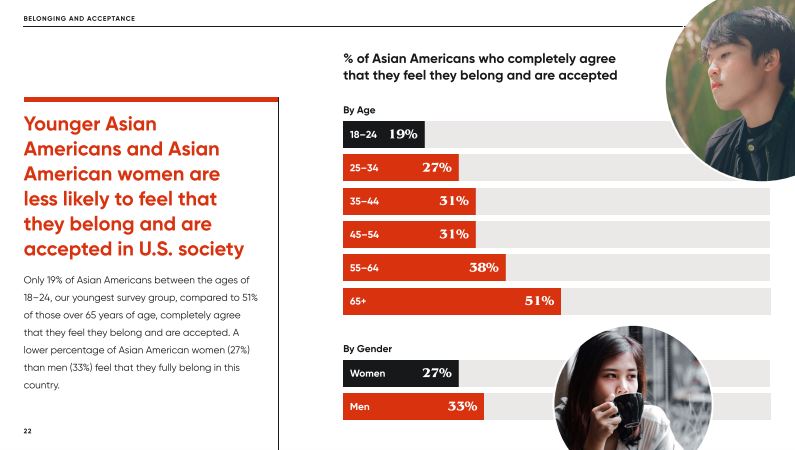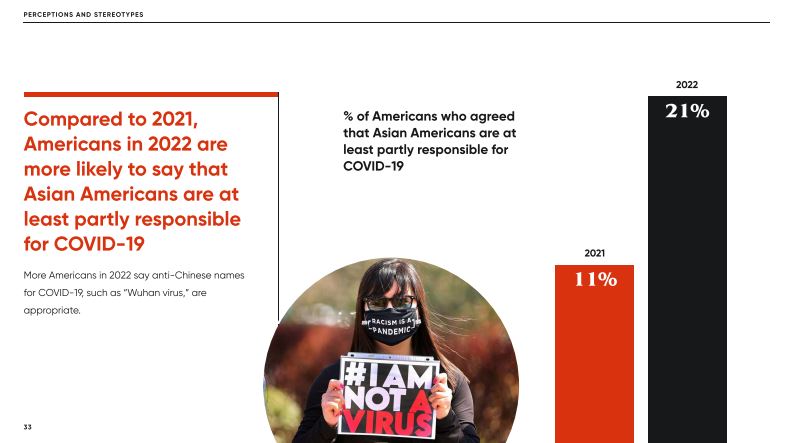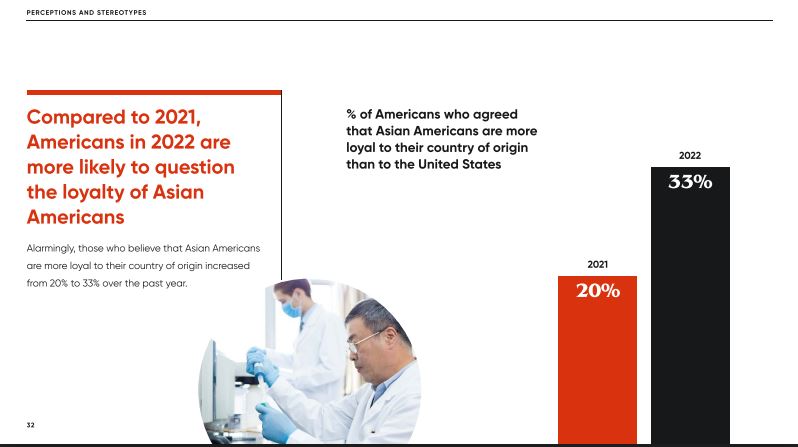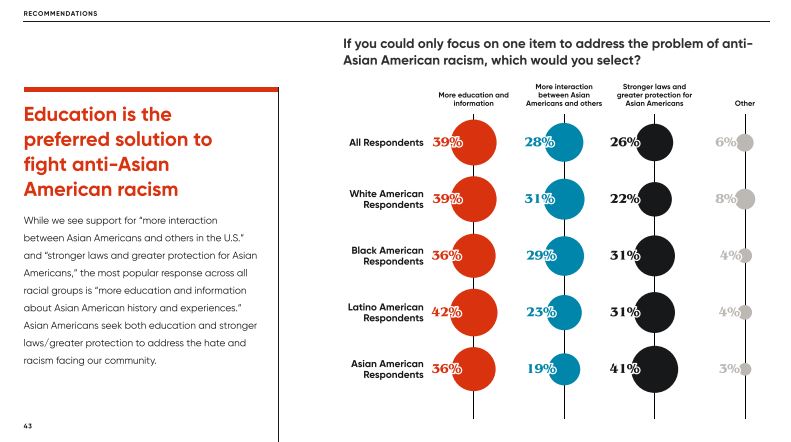By Louis Chan, AsAmNews National Correspondent
Ayana Galace took pictures growing up with powder on her face because she wanted to be White.
“The other, kind of sad to say, it becomes part of your identity that we’re different from them,” the 26-year-old Filipina American from San Diego said to AsAmNews.
A new report released today by The Asian American Foundation and Leading Asian Americans to Unite for Change found that only 29% of Asian Americans completely agree that they belong and are accepted in the U.S.
That’s lower than any other racial group including Blacks, 33%, and Whites, 61%.
Breaking it down even further, Asian American youth and women are the least likely subgroup among Asian Americans to feel they belong or are accepted-just 19% of Asian Americans between the ages of 18 -24 and 66% of women compared to 75% of men.

28% of U.S.-born Asian Americans agree with this statement versus 34% of Asian Americans who are naturalized citizens.
“I don’t think I’ll ever know how accepted I am because I’ll never know what it’s like to not be Asian American or to not be a woman,” said Galace who was born in California’s Central Valley. “Anytime I face a microaggression or I feel like I’m facing discrimination. I never know if it’s because of my race or ethnicity or gender or anything like that.”
The results of this report are based on a national survey of 5,113 U.S. residents 18 and over. That includes 2840 Whites, 888 African Americans, 1023 Latinos and 1074 Asians and Asian Americans. Savanta Research conducted the survey between February 10 and February 28, 2022.
The tracking survey now in its second year found 21% of respondents believe Asian Americans are at least partly responsible for COVID. That’s up from 11% in 2021.

33% also believe Asian Americans are more loyal to their country of origin. That’s up from 20% who said the same thing in last year’s survey.

“Ultimately, it’s people in power, fearful of, of others, who they see as threats,” said Norman Chen, CEO of TAFF and acting CEO of LAUNCH, to AsAmNews. “People have welcomed Asian Americans when they need cheap labor when they need technology. But when there are times of crisis, either economic crisis, or political crisis, or in this case, healthcare crisis, then Asian Americans become the scapegoats. This idea of Asian Americans being the perpetual foreigner is used to stigmatize Asian Americans, and used as a reason to attack and cause violence against Asian Americans.”
On the positive side, 71% of all Americans say they would like to see more Asian Americans in TV and movies. 74% of Black Americans surveyed say that, 76% of Latino Americans and 68% of White Americans.
Chen sees TV and movies as a powerful way to counter stereotypes of Asian Americans as perpetual foreigners or model minorities.
He’s also happy to see that most Americans believe education is a key solution to fighting anti-Asian American racism.

This is particularly important, believes Chen, given that 42% of all Americans surveyed could not cite a significant event or policies involving Asian Americans.
58% could not name a single prominent Asian American. Only 3% mentioned Kamala Harris, the first Asian American and Indian American elected to be Vice President. More people named Jackie Chan, 7%, despite the fact he is not American.
“Clearly, there’s a strong need for more Asian American information in history,” said Chen. “Also, we asked people where they get their sources of information about Asian Americans and school was very, very low. It was primarily social media, TV and movies and media. And so again, all that indicates there’s a gaping hole gaping lack of information about Asian Americans.”
Galace says combatting anti-Asian hate will take a coordinated effort.
“I think education is a huge proponent of it,” she told AsAmNews. “Growing up, I got called up ‘fresh off the boat,’ stuff like that. So that education really need to start up early. Companies need to adopt better hiring processes and they just need to have good faith efforts to be more inclusive. Governments need to, in good faith, focus on increased representations and appropriate funding and appropriate resources to these things.’
The full report from TAFF and LAUNCH can be found here.
AsAmNews has Asian America in its heart. We’re an all-volunteer effort of dedicated staff and interns. Check out our new Instagram account. Go to our Twitter feed and Facebook page for more content. Please consider interning, joining our staff, or submitting a story, or making a contribution.


